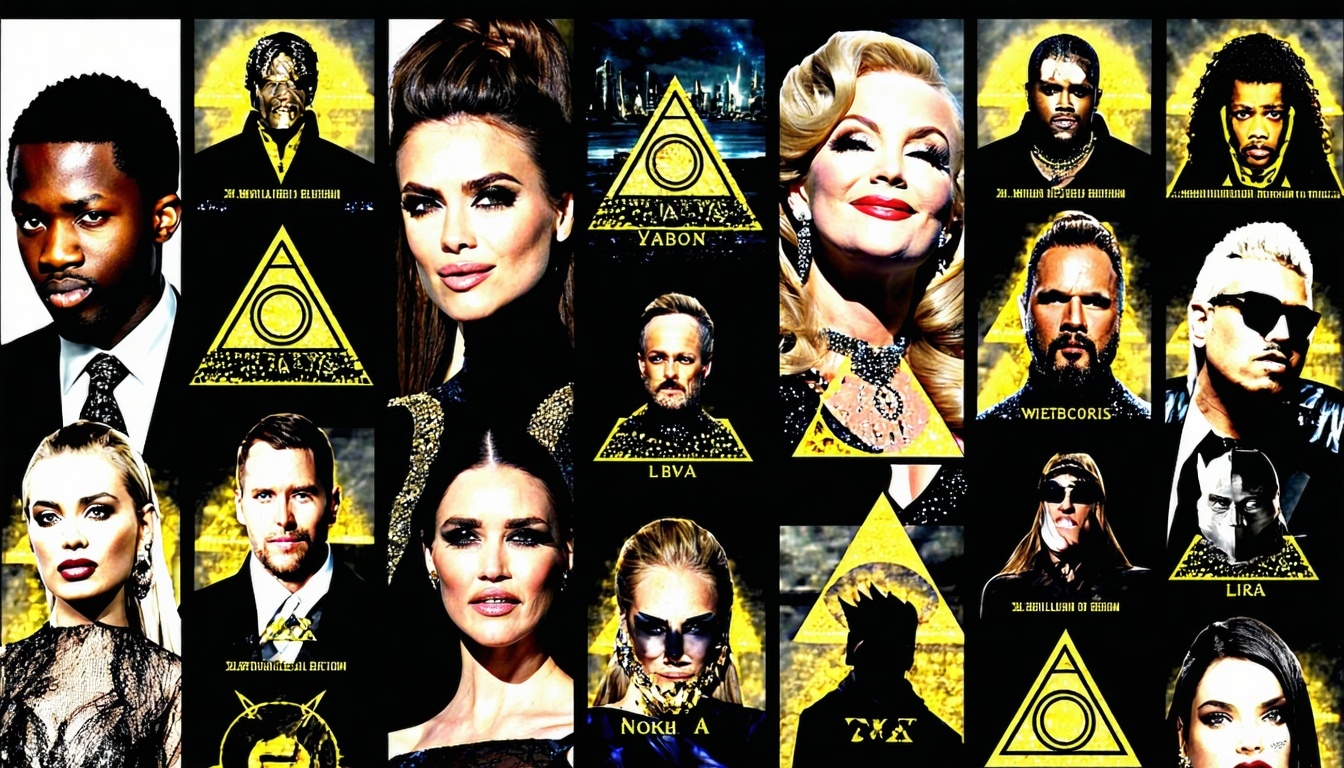Discover who can join the Illuminati, what the true membership requirements are, and how to prepare...
Celebrities And The Illuminati: What’s The Connection?

Unravel the mystery behind the connection between celebrities and the elusive Illuminati, exploring theories, symbolism, and the impact on popular culture.
The Origins of the Illuminati and Its Alleged Influence on Celebrities
The Illuminati, a term steeped in mystique and secrecy, traces its origins back to the Bavarian Illuminati, an Enlightenment-era secret society founded in 1776. Originally, this organization aimed to promote enlightenment ideals, such as reason and secularism, while opposing religious and political oppression.
Over time, the Illuminati became synonymous with conspiracy theories suggesting that the group wields immense power behind the scenes, influencing global events and high-profile individuals. Celebrities, with their far-reaching influence and visibility, are often implicated in these theories. Some believe that the Illuminati co-opts celebrities to propagate specific agendas, using their platforms to subtly shape public perception and behavior.
Symbolism and Secret Messages: How Celebrities Supposedly Signal Their Allegiance
One of the hallmarks of Illuminati conspiracy theories is the interpretation of symbols and secret messages purportedly embedded in popular culture. Symbols such as the Eye of Providence, pyramids, and pentagrams are often cited as evidence of a celebrity's allegiance to the Illuminati. These symbols appear in music videos, fashion choices, and public gestures, leading some to speculate about hidden meanings.
For instance, the 'All-Seeing Eye' is a recurring motif in music videos and album covers, often interpreted as a nod to the Illuminati. Similarly, hand signs like the 'devil horns' or forming a triangle with one's hands are believed to be covert signals to fellow members. Critics argue that these interpretations are often exaggerated and lack substantial evidence, but they continue to captivate the public imagination.
High-Profile Celebrities Accused of Being Illuminati Members
Numerous celebrities have been accused of being members of the Illuminati, often without concrete proof. High-profile figures like Beyoncé, Jay-Z, Kanye West, and Rihanna are frequently targeted by these theories. Their immense influence, coupled with their use of symbolic imagery, fuels speculation about their ties to the secret society.
For example, Beyoncé and Jay-Z have been accused of using Illuminati symbolism in their music and public appearances. Kanye West's controversial statements and actions further stoke these rumors. While these accusations are largely speculative and unproven, they reflect the public's fascination with the idea of a hidden power structure controlling the entertainment industry.
Debunking the Myths: What’s the Truth Behind the Claims?
Despite the widespread popularity of Illuminati conspiracy theories, there is little concrete evidence to support the claims that celebrities are part of a secret society manipulating global events. Many of the so-called 'symbols' can be attributed to artistic expression, coincidence, or marketing strategies designed to attract attention and provoke discussion.
Skeptics argue that the allure of these theories lies in their ability to provide simple explanations for complex social phenomena. The notion of a powerful, hidden group pulling the strings can be more appealing than confronting the unpredictable nature of fame and influence. While the fascination with the Illuminati persists, it is crucial to approach such claims with critical thinking and a healthy dose of skepticism.
The Impact of Illuminati Theories on Popular Culture and Public Perception
The enduring allure of Illuminati conspiracy theories has had a significant impact on popular culture and public perception. These theories provide a lens through which fans and critics alike interpret the actions and successes of celebrities. The idea of an all-powerful, secret society adds an element of intrigue and mystery to the entertainment industry.
However, this fascination can also have negative consequences. Celebrities accused of being part of the Illuminati may face unwarranted scrutiny and backlash. Moreover, the spread of such theories can contribute to a culture of paranoia and distrust. As these narratives continue to evolve, it remains essential to distinguish between entertainment and reality, and to approach sensational claims with a discerning eye.
.png?width=100&height=100&name=Illuminati%20Prime%20Society%20Logo%20(1).png)
.png?height=200&name=An%20Illuminati%20scroll%20tied%20with%20black%20silk%20ribbon%2c%20glowing%20faintly%20under%20candlelight%20during%20a%20gifting%20ritual.%20(1).png)
.png?height=200&name=Square%20and%20Compass%20symbol%20representing%20Freemasonrys%20emphasis%20on%20morality%20and%20virtue.%20(2).png)
